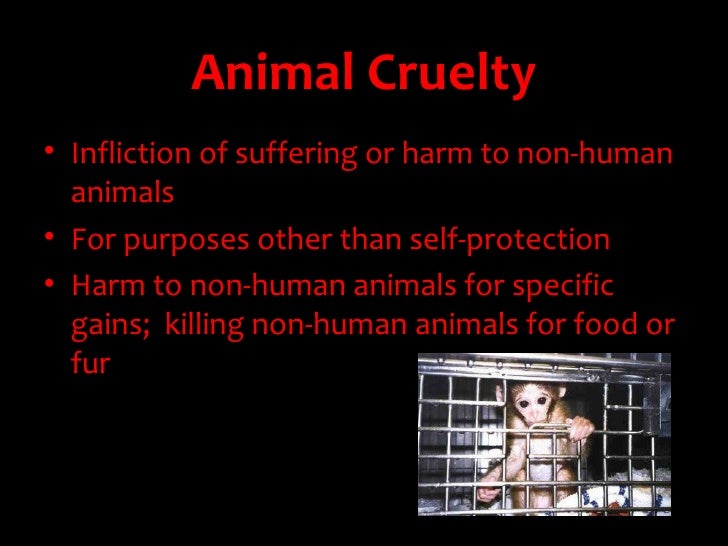In the modern workforce, where ethical values are often a focal point of corporate culture and employee expectations, an intriguing question arises: Are people who perpetrate cruelty against animals becoming increasingly unhirable? This inquiry necessitates a deep dive into the intersections between employment, ethics, and animal rights. As society evolves toward greater awareness and sensitivity regarding animal welfare, the repercussions of one’s actions towards animals may reverberate far beyond personal morality, influencing employability and overall societal acceptance.
The crux of this discourse resides in the evolving perception of animal welfare. Historically, concepts of animal rights have been relegated to the fringes of societal concern. Nevertheless, with the advent of social media and greater access to information, public discourse around these issues has surged. Ethical considerations regarding how we treat animals now permeate various spheres, including business ethics and recruitment processes. Employers are increasingly aware that the values of their workforce reflect the values of their brand. Consequently, a growing number of companies are scrutinizing the ethical behaviors of potential employees, which encompasses their treatment of animals.
Consider the scenario of a job applicant with a documented history of animal cruelty. Such a background raises questions not only about the individual’s moral compass but also about their suitability for a workplace dedicated to ethical practices and communal values. Hiring managers, often under pressure to cultivate a positive workplace culture and brand reputation, may view such an individual as a liability. This perception stems not solely from the act of cruelty itself, but from a broader implication: a person capable of inflicting harm on a sentient being may also engage in unethical conduct in human interactions.
This phenomenon begs a critical examination of ethical hiring practices. Businesses often aspire to cultivate a culture of kindness, empathy, and respect—qualities antithetical to cruelty. Firms that align with such values are likely to prioritize not only the talents and skills of potential hires but also their ethical considerations and psychological profiles. The recruitment process transforms into a battleground for integrity; the stakes are high. Employers are not merely filling positions; they are actively choosing individuals who will represent their values and mission.
Furthermore, public sentiment regarding animal welfare shapes consumer behavior and, by extension, organizational success. Companies that champion animal rights tend to gain favor with socially conscious consumers. This market shift drives employers to keenly consider the ethical backgrounds of their candidates. An applicant’s disregard for animal welfare could be a red flag in an organization that proudly espouses principles of social responsibility. The ripple effects are potent; cruelty to animals not only compromises personal reputation but may also inhibit potential career trajectories.
While ethical considerations dominate this discussion, the ramifications of animal cruelty extend into legal and regulatory arenas, too. In some jurisdictions, a history of animal neglect or cruelty may lead to legal repercussions, including fines or incarceration. Such issues can tarnish an individual’s reputation, impeding job opportunities in competitive fields. Employers may conduct background checks that unveil a troubling history, ultimately disqualifying applicants long before they have a chance to convey their skills or aspirations.
The cycle of animal cruelty and unhirability poses a formidable challenge for those seeking redemption or a second chance in the workforce. Fundamentally, society must grapple with how to balance personal accountability with opportunities for rehabilitation and reform. For instance, can an individual who has committed acts of cruelty genuinely reform and become an advocate for animal rights? This dilemma presents a dual path: while societal condemnation is justified, pathways to personal growth and change should also be cultivated. The potential for redemption not only enriches the individual’s life but can also serve the greater good.
Implementation of educational programs focused on compassion and humane treatment of animals in conjunction with job training initiatives could promote healing and understanding. A collaborative approach might better suit individuals interested in mending past wrongs while preparing for their future careers. By emphasizing rehabilitation, society could leverage these experiences to foster more empathetic individuals, who contribute positively to both human and animal communities.
On a broader scale, this evolving landscape calls for a cultural shift. Normalizing discussions regarding animal welfare and corporate ethics can facilitate healthier dialogues around the complexities of human behavior. Employers, employees, and consumers alike must ponder over the ethical dimensions of their choices and actions. Societal progress hinges on increasing awareness and fostering empathy, not just towards animals but within all aspects of human interaction.
In conclusion, the implications of animal cruelty extend beyond the individual act. They ripple through the fabric of society, influencing both personal relationships and professional opportunities. As the dialogue around animal rights continues to flourish, one must consider the ramifications of such behavior in the workplace. This interplay between cruelty and employability raises critical questions: What are the long-term effects of one’s ethical stance on personal prospects? Is it truly possible for society to create a culture of accountability while simultaneously embracing the potential for growth and understanding? In an increasingly interconnected world, these are not merely academic inquiries; they are the bedrock of our future workplaces, our communities, and our shared humanity.








